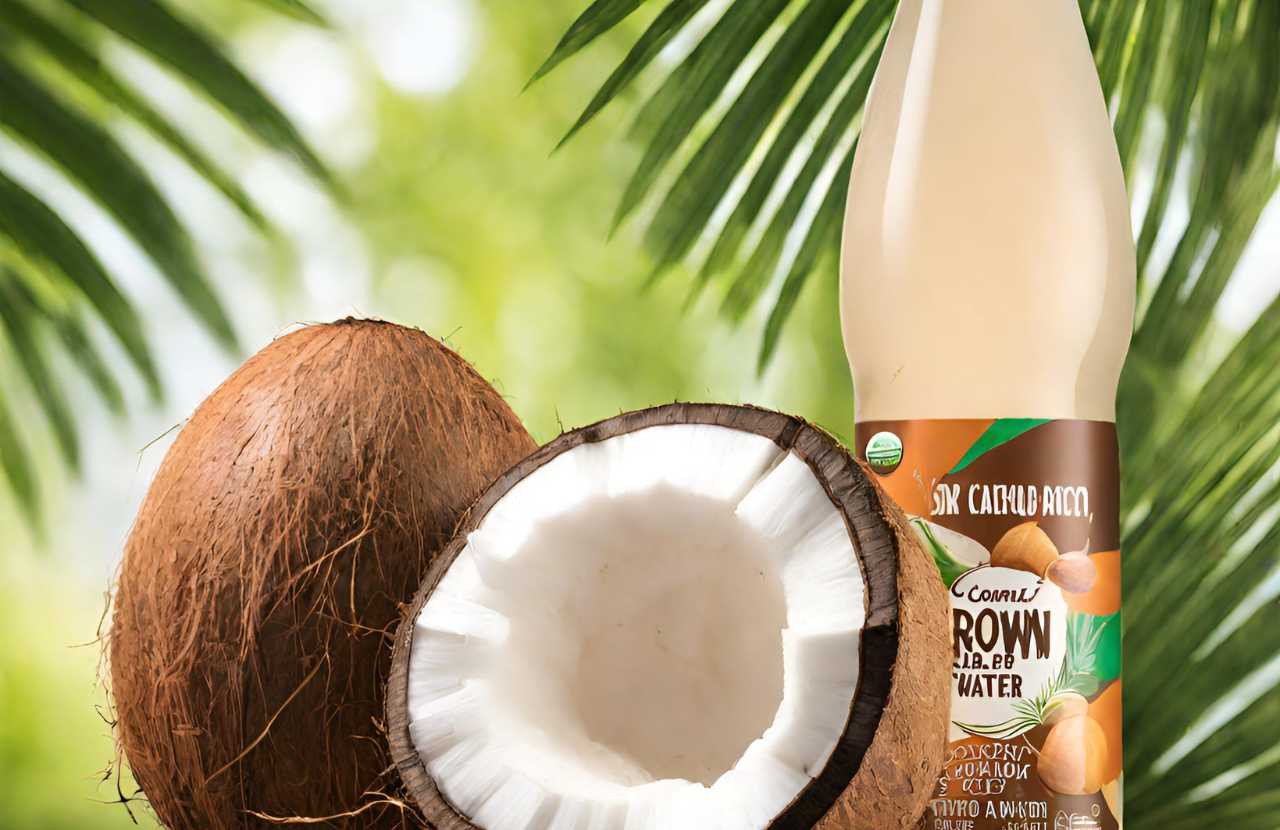Many tropical lovers often ask, “Why can’t you drink brown coconut water?” heralding a growing curiosity about this often misunderstood aspect of nature’s refreshment. It’s essential to know the difference between healthy and potentially spoiled coconut offerings.
The simple answer to “Why can’t you drink brown coconut water” lies in its maturity and freshness indicator—brown coconut water usually means the coconut is old or has been exposed to air, which can affect its taste and possibly its safety. It’s a clear sign that the coconut water is past its prime.
So, as you scoop up a coconut looking forward to a sip of paradise, keep in mind the coconut water’s hue. Freshness is key, and transparency in coconut water is not just about visuals – it’s about quality and enjoyment too.
Can We Drink Brown Coconut Water?
Coconut water is a popular, refreshing beverage enjoyed by many around the world. However, when it comes to brown coconuts, the water inside may not be the best for drinking. Here are some reasons why:
- Maturity of the Coconut: Brown coconuts are fully mature, and the water inside may not be as sweet or refreshing.
- Taste and Quality: The water in brown coconuts can develop a sour or even alcoholic taste due to fermentation.
- Safety Concerns: Brown coconut water is prone to bacterial contamination, especially if the coconut has been cracked or stored improperly.
- Health Risks: Drinking brown coconut water can lead to an upset stomach and other health issues.
Maturity of the Coconut
Brown coconuts are the mature form of the fruit. As coconuts age, the water inside can ferment, altering its composition and taste. The sweet and refreshing flavor associated with green, young coconuts is often absent in brown coconuts.
Taste and Quality
The water inside brown coconuts can develop a sour or even alcoholic taste due to fermentation. This change in flavor is a clear indicator that the coconut water is no longer in its prime state for consumption.
Safety Concerns
Brown coconuts pose a higher risk of bacterial contamination. The fermentation process can encourage the growth of bacteria, and if the coconut has been cracked or stored improperly, it can become a breeding ground for harmful microorganisms.
Health Risks
Drinking brown coconut water can lead to gastrointestinal distress, including symptoms like nausea, vomiting, and diarrhea. In some cases, it can even expose you to harmful bacteria like E.coli. It’s important to be cautious and avoid drinking coconut water if there are any signs of spoilage, such as an off smell, taste, or the presence of bubbles.
Why can’t you Drink Brown Coconut Water?
Not all coconut water is created equal, and the color can be an important indicator of its quality. Here are some reasons why you should think twice before drinking brown coconut water.
- Oxidation: Exposure to air can cause coconut water to turn brown.
- Age of the Coconut: Older coconuts tend to have brown water, which may not be as fresh or tasty.
- Temperature: Improper storage at high temperatures can spoil the water.
- Contamination: Brown color may indicate contamination or the presence of molds.
- Nutrient Los: The quality and nutrient content might be compromised in brown coconsut water.
Oxidation
When coconut water is exposed to air, it undergoes a process called oxidation. This can happen when a coconut is cracked open and the water inside comes into contact with oxygen. Oxidation can lead to a change in color, turning the water from clear to pinkish or brown. While a slight change in color doesn’t necessarily mean the water is bad, it can indicate that it has been exposed to air for some time, which may affect its taste and freshness.
Age of the Coconut
The age of the coconut from which the water is extracted plays a significant role in determining its color. As coconuts mature, the water inside can turn a yellowish or brownish color. This is a natural process as the water begins to transform into the white coconut meat. While this doesn’t always mean the water is unsafe to drink, it might not have the same sweet flavor or high nutrient content as the water from a younger, greener coconut.
Temperature
Storage temperature can greatly affect the quality of coconut water. If coconuts are stored in a warm environment, the heat can accelerate spoilage and lead to fermentation. This process can cause the coconut water to turn brown and develop an off-putting taste. To maintain its quality, coconut water should be stored in a cool place and consumed relatively quickly after the coconut is opened.
Contamination
A brown tint in coconut water could be an indication of contamination. If the coconut shell has cracks or holes, bacteria and molds can enter and contaminate the water. Drinking contaminated coconut water could lead to foodborne illnesses. Therefore, it’s important to inspect coconuts for any signs of damage before consuming their water.
Nutrient Loss
Coconut water is valued for its electrolytes and nutrients such as potassium, magnesium, and antioxidants. If the coconut water turns brown, it may suggest that it has lost some of its nutritional value. While it might still provide hydration, you might not benefit from all the healthy nutrients that clear coconut water offers.
Final Words
In conclusion, while brown coconut water may not always be harmful to drink, it’s usually best to opt for clear or slightly opaque coconut water to enjoy its optimal taste and nutritional benefits. Always check for freshness and proper storage before consumption to ensure you’re getting the best out of this tropical treat.

